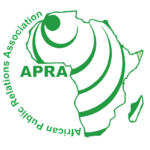Operational Phase of the African Continental Free Trade Area is launched

The 12th Extraordinary summit of the African Union was held in Niamey on the 7th of July 2019. It was a momentous occasion for Africa, as it saw the successful launching of the operational phase of the African Continental Free Trade Area, AfCFTA, after a day-long summit of Heads of State and Government of the African Union (AU).
Ghana was selected as the host of the AfCFTA secretariat, beating competition from three other countries that had expressed an interest in hosting it. Egypt, Ethiopia and Senegal withdrew their bids to host the AfCFTA Secretariat.
The launch ceremony included “a roll call of honour”, at which the 27 countries that have ratified the instruments of the AfCFTA to date were announced, and the 28 that have signed but not yet ratified were mentioned. One country, Eritrea is yet to sign. A commemorative plaque of the signing was also unveiled.
The AfCFTA agreement was adopted and opened for signature on 21 March 2018 in Kigali. It entered into force on 30 May 2019, thirty days after having received the twenty-second instrument of ratification on 29 April, 2019 in conformity with legal provisions.
“The speedy entry into force of the AfCFTA is a source of pride for all of us”, said AU Commission Chairperson Mr. Moussa Faki Mahamat. He described the free trade agreement as one of the instruments for continental integration in line with the objectives of the Abuja Treaty and the aspirations of Agenda 2063.
“This landmark achievement is the economic and commercial equivalent of launch of the OAU on 25 May, 1963”, said the African Union’s Commissioner for Trade and Industry, Ambassador Albert Muchanga.
The AfCFTA will be one of the largest free trade areas since the formation of the World Trade Organisation, given Africa’s current population of 1.2 billion people, which is expected to grow to 2.5 billion by 2050.
In my interview with the Commissioner of Trade and Industry, Ambassador Albert Muchanga, he had this to say.
Briefly explain the 5 operational phases that were launched in Niamey.
The launch of the operational phase was characterised by the adoption of five key instruments, i.e.
● The Rules of Origin- a regime governing the conditions under which a product or service can be traded duty free across the region
● The tariff concessions- it has been agreed that there should be 90 percent tariff liberalization and the deadline is 1st July 2020. Over a ten year period with a 5 year transition, there will be an additional 7 percent “sensitive products” that must be liberalized
● The online mechanism on monitoring, reporting and elimination of non-tariff barriers, NTBs- NTBs are a great hindrance to intra African trade; some of them are physical, like poor infrastructure, while others are administrative like the behavior of customs officials. They are going to be monitored with a view to ensure that they are eliminated.
● The pan African payment and settlement system- will facilitate payments on time and in full, by ensuring that payments are made in local currency and at the end of the year there’ll be net settlements in foreign exchange. With the certainty of payments, there will be confidence in the system.
● The African Trade Observatory- a trade information portal. One of the greatest hindrances to trade in Africa is lack of information about opportunities, trade statistics, about the exporters and importers in countries. The trade observatory will have all this information. The information will be supplied by member states, ensuring that they own it.
What is the significance of the African Continental Free Trade Area?
The AfCTA will, among others:
● Stimulate levels of intra African tradeStimulate production: experts have said the AfCFTA is going to create more trade than it is going to divert. This is an opportunity e.g. through development of regional value chains, to ensure that manufacturing, agro processing and other activities across the continent are stimulated to supply the market.
● Strengthen capacities of African companies to access and supply world markets.
● Strengthen African’s economic and commercial diplomacy.
What will be the role of the AfCFTA secretariat to be hosted by Ghana?
The secretariat is the engine room of the AfCFTA. It will facilitate the efficient conduct of business of the AfCFTA. The Secretariat will develop the working programme and the annual budget, and will implement the decisions of the ministers and Heads of State and Government.
Before the secretariat starts its work though, there is some work to be done between now and December, e.g. finalisation of the host agreement with Ghana, drafting the secretariat’s budget, organisational structure, work programme and hiring of the Chief Executive Officer. The AU Commission will be the interim secretariat.
What challenges are foreseen in the implementation of the AfCFTA and what mitigatory measures are in place?
The first challenge is cultural. Some Africans are not very sure we have the capacity to do what we have challenged ourselves to do. We need to dispel this fear and say ‘if we can conceive such a bold idea, we must also be bold in execution’.
There is also the challenge of other people who want Africa to remain where it is. The continent is an aggregation of 55 fragmented member states and when we are fragmented we are weak and some of our partners can play the divide and rule game. So they are going to try by subtle means, to maintain the status quo of having the 55 African countries engage commercially with them at the individual level. That will keep us weak. We will be stronger through a process of defragmentation.
Another key challenge is the size of Africa and the difficulty of moving from one place to the next. Africa is a big market and the distances between the regions are huge. So we need to have a framework of collaboration with the Regional Economic Communities in the implementation of the AfCFTA especially with respect to trade facilitation.
We are also working with colleagues in our sister department of Infrastructure and Energy to ensure that we have very good connectivity across Africa, under the Single African Air Transport Market, SAATM. This will allow people to move faster and more efficiently..
There are many other challenges. At last count, we had identified 54, but we are ready to meet them.
When will Africans start to see the benefits from the AfCFTA?
The Heads of State and Government meeting in Niamey said the start of trading should be 1st July 2020. When we launch the start of trading on that day, we’d like to see a situation where citizens immediately start to enjoy the benefits of a free market. That is going to be seen in lower prices of goods and services, and also goods of high quality. We hope that immediately after the start of trading we are going to have a very effective and very efficient market, supplying goods and services across Africa.
Credit: Wynne Musabayana
Head of Communication at African Union Commission

